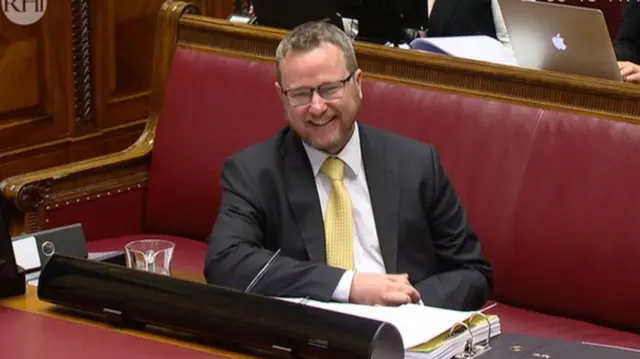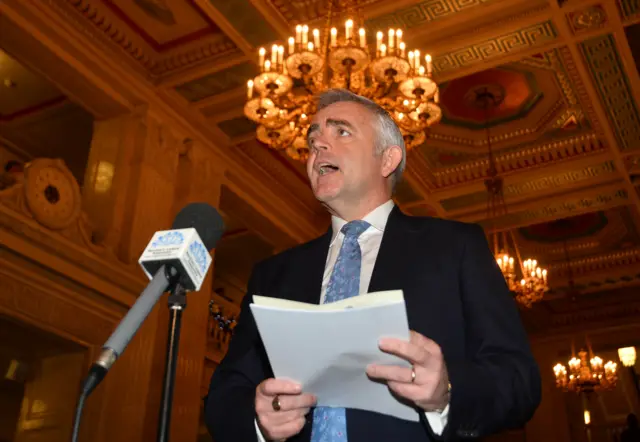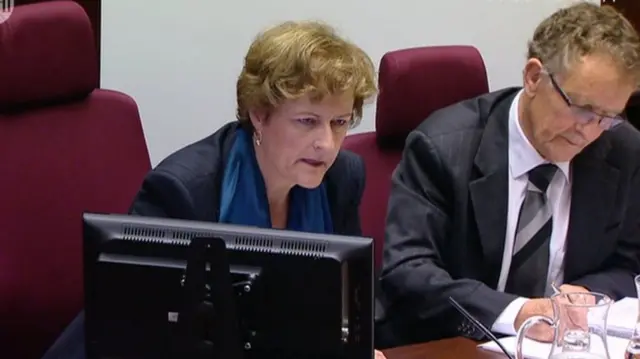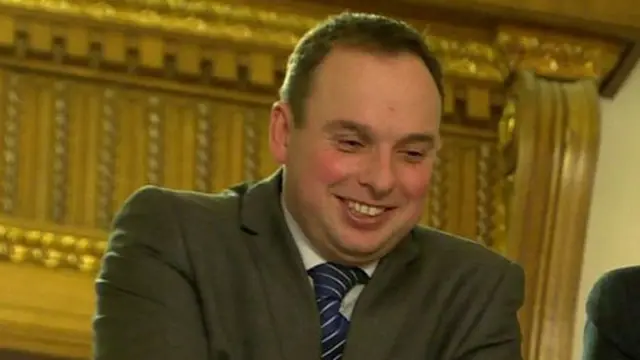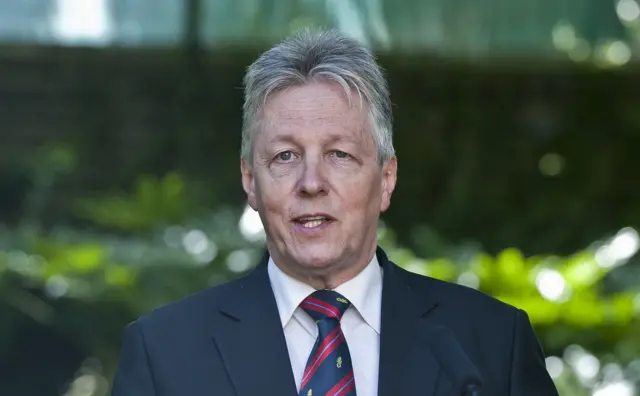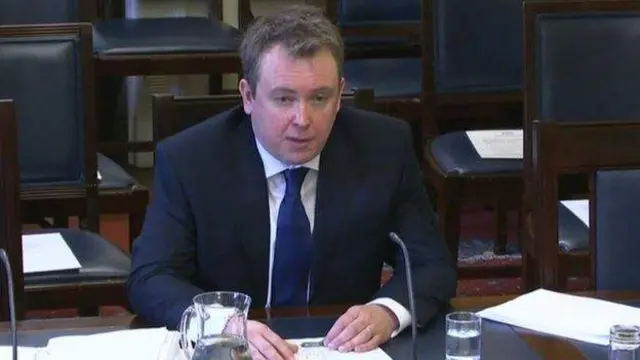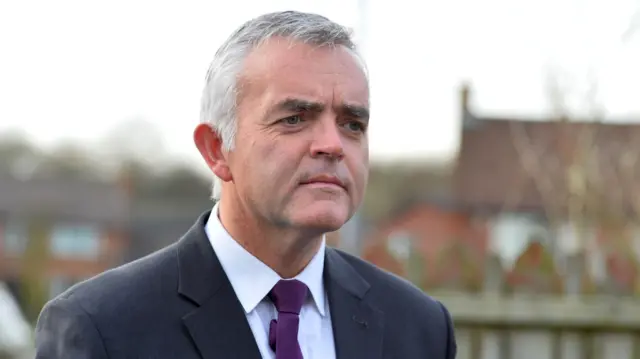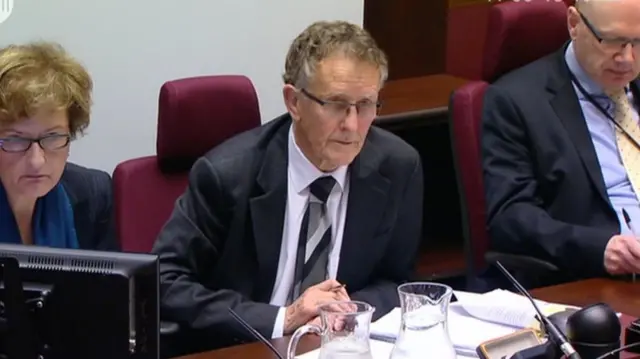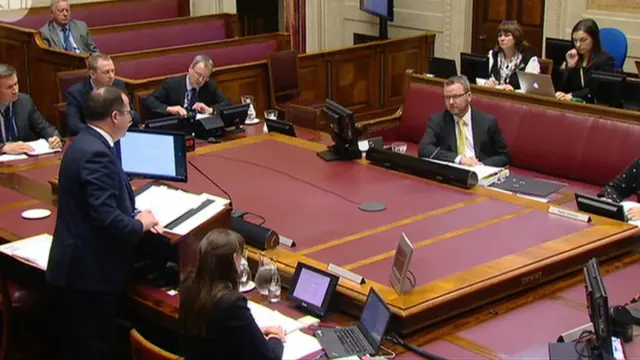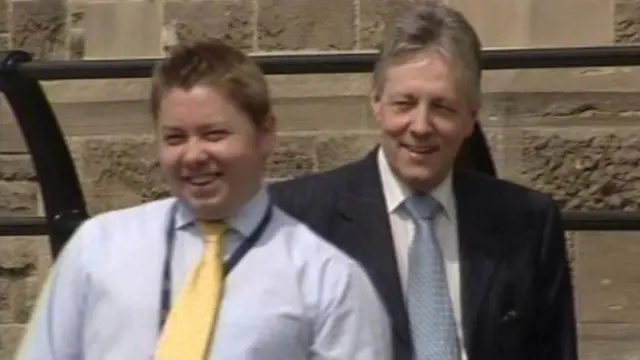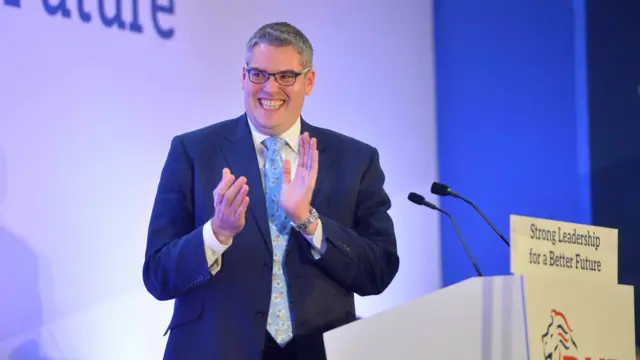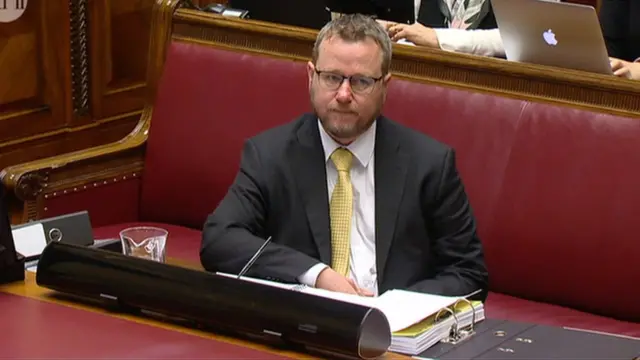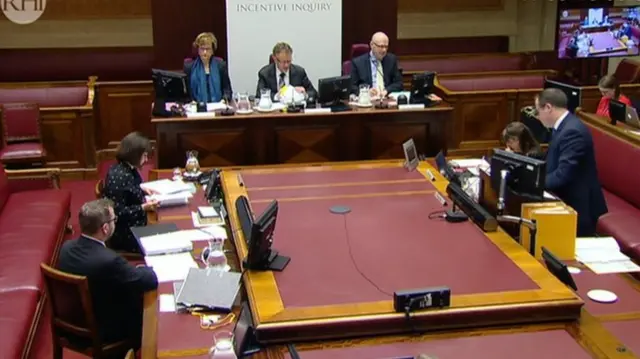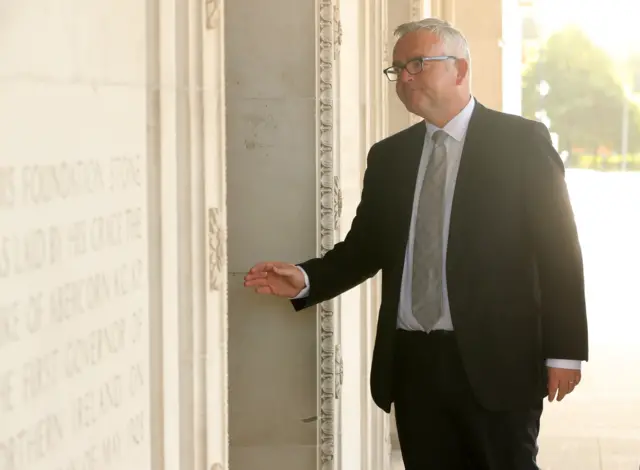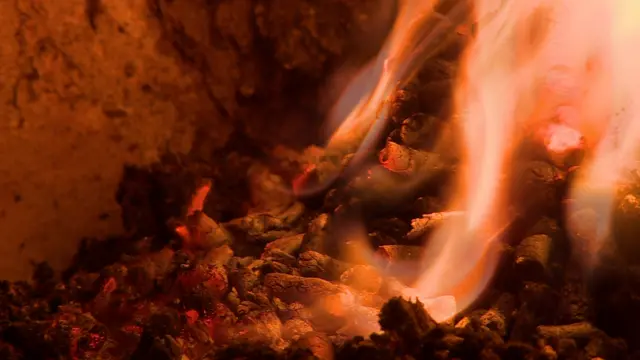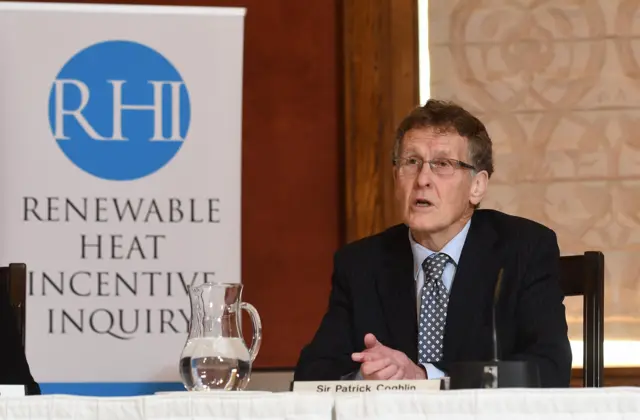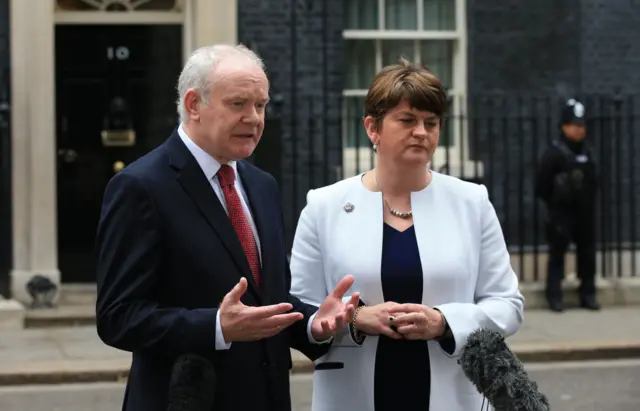'Hard to imagine anyone defying Robinson'published at 12:18 BST 11 September 2018
The "politics of the situation" was that Mr Cairns took instructions from not only his own minister but also from the first minister's office through advisers, he says.
"The leader of any political party... obviously carries considerable influence and power over and above their ministers," he adds.
 Image source, Getty Images
Image source, Getty ImagesThere were times when he was "invited to carry a message" from the first minister's office to his minister, Mr Bell.
It's "hard to conceive" of anyone involved - ministers, advisers of other DUP employees - who "when Peter Robinson asked them to do something felt that they wouldn't do it".
